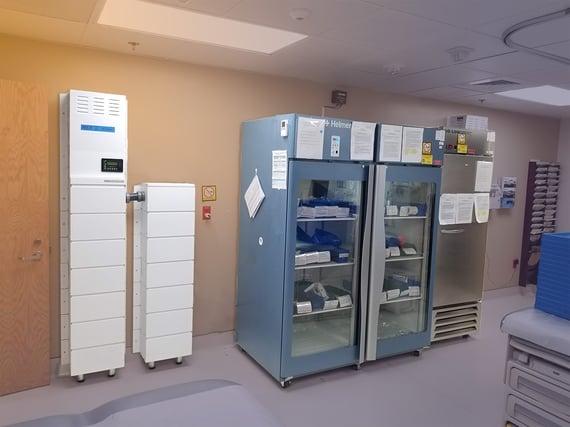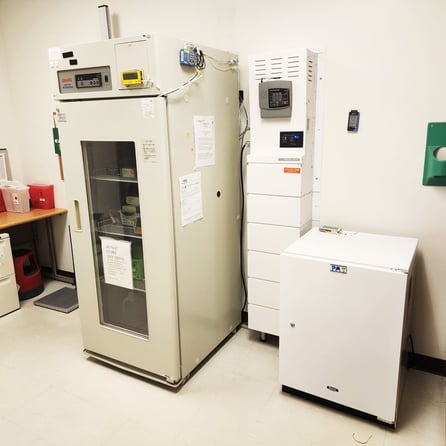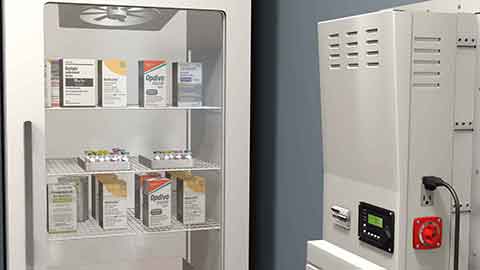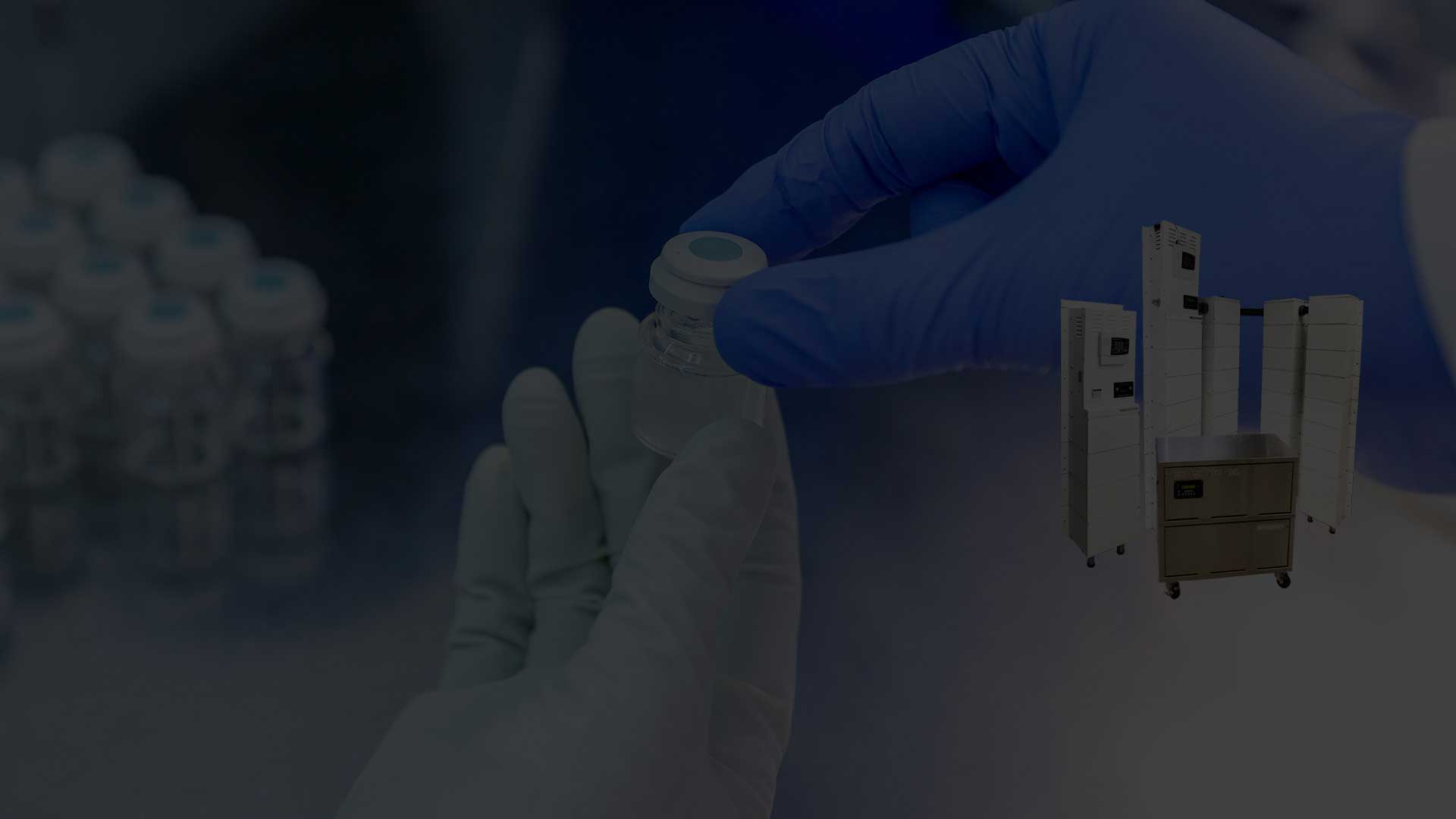Why You Need Lab Incubator Battery Backup
Lab incubator are essential pieces of equipment in all research facilities. Their controlled environments are perfect for safe and reliable work with cell and tissue cultures. It regulates conditions such as temperature, humidity, and CO2.
But, the design of a typical lab incubator is such that it requires an uninterrupted supply of power to work . Unfortunately, the unpredictable nature of both weather and utility companies makes this difficult. Thus, its up to healthcare providers and research facilities themselves to ensure that they have a reliable power source.
Below, we'll discuss what to consider when getting a lab incubator and how a battery backup systems can improve operations.
WHAT IS A LAB INCUBATOR?
Incubators are heated, insulated containers that provide a controlled, contaminant-free environment for safe, reliable work with cell and tissue cultures. The incubator maintains an optimal internal atmosphere of by regulating:
- Optimal temperature
- Humidity
- and Gaseous Content
thus providing an ideal environment for microbiological activities. Modern laboratory incubators also allow you to control the temperatures and humidity levels by hand.
TYPES OF LAB INCUBATORS
There are different types of laboratory incubators—their differences reflected in their functions.
Natural Convection Lab Incubators
They are also known as gravitational or free convection incubators. They often find use in thermal convection applications. They provide temperature ranges of +7.5oC to 80oC.
BOD (Biological Oxygen Demand) Incubators
They are also known as low-temperature incubators and are generally used to grow yeast and mold in vitro. They typically provide temperature ranges between 20 to 25oC.
Shaker Incubators
They are designed to incubate and agitate (shake) samples simultaneously. They are excellent for labs that require cell culture, cell aeration, and solubility experiments.
Hybridization Incubators
They are also known as hybridization ovens. These incubators provide defined temperature control, agitation, and consistency throughout the incubator's chamber.
Dry Bath Incubators (with single or dual blocks)
Dry bath incubators are typically made of an aluminum alloy that allows heat to distribute evenly. There are two main categories: digital dry baths and analog dry baths. The digital units incorporate microchips that control the bath through a digital interface. The analog, on the other hand, functions without microchip technology.
CO2 incubators
CO2 incubators provide ideal breeding grounds for microorganisms that cannot thrive in oxygen-rich environments. The incubator is equipped with infrared or thermal conductivity sensors that maintain the CO2 levels.
But, these incubators are particularly special, as they body temperature and conditions. So, CO2 incubators are easily vulnerable to contamination. Thus, they have a sterilization system that cleans the incubation chamber, preventing contamination.
THINGS TO CONSIDER WHEN BUYING A LAB INCUBATOR
Facility Needs
You must consider the kind of research work your facility will take on and get an incubator that will meet your research needs perfectly. You want to avoid getting an incubator and then start trying to make it fit your needs.
Available Space
It is best to have a space already marked out for the incubator before you choose one so that you can maximize the office space you have. Also, it would be best if you got an incubator that is large enough to meet your research needs. Its internal capacity must effectively and efficiently meet your needs per time.
Operating/Ambient Temperature
Because the incubator will deal with living organisms, it is vital to ensure a stable temperature. Furthermore, these samples are very fragile. Slight deviations in temperature can ruin entire cultures. Thus, you should buy an incubator with temperature regulation and control for best performance.
Because of the importance of temperature monitoring, it is best to get an incubator with a built-in alarm system to notify you of any temperature changes.
Alternatively, you can place data loggers inside the incubator chamber. The data loggers will track temperature levels and send messages to personnel if there is a temperature change.
Controlling Contamination
The sensitive nature of incubator projects requires you to place a premium on hygiene. A few ways contamination can occur include:
- Touching the incubator with non-sterile gloves,
- Air-borne germs
- Remaining residue from past tests
Thus, consider buying a lab incubator with incorporated sterilization cycles. These will clean the machine's interior and ensure effective decontamination.
The Price of The Lab Incubator
Lab incubators are expensive. Even more so when support infrastructure is considered . Thus, you must do your research first, count the cost, and ensure that your budget will suffice.
Maintain a Constant Power Supply
By design and function, a lab incubator requires a constant power supply to operate effectively. Without this, the incubator is as good as useless. This is an essential factor to consider when buying a laboratory incubator.
Unfortunately, unpredictable weather conditions make it impossible to ensure constant energy from your provider’s utility power supply. And while som incubators do have some amount of backup power—it may not be enough.
While this may suffice for a few minutes, it will be an issue if you are away from the office, either after business hours or on weekends. Thus, it’s considered best practice to to install a separate battery backup system (also called an uninterrupted power supply) that will provide longer run times for the incubator during a power outage and is fully independent.
HOW TO PROTECT LAB RESULTS AND SAMPLES WITH LAB INCUBATOR BATTERY BACKUP POWER SUPPLY

Medi-Product’s entire line of plug and play battery powered backup generators are line-interactive, enabling them to monitor power input and automatically engage when an outage occurs. When not being used, they can automatically charge their batteries
However, as soon as the battery system senses a loss of utility power, it switches to its batteries and keeps your machine powered in milliseconds. This means most equipment will continue to run as if nothing happened.
Furthermore, our systems are custom sized to meet desired runtimes and support specific appliances as requested. Common requests include systems that can power entire procedure rooms or ultrasound labs for 8, 12, 24, and even 48-hours with one single system that all appliances can plug directly into.
And with three separate form factors to choose from, a MediProducts battery backup is sure to fit anywhere inside your facility whether you need:
- A standalone Plug-and-Play solution in the same room as your medical equipment,
- A Portable power station that can be moved around the room or your facility
- Or, a backup power system that remotely supplies power to the outlets your appliances are connected to.
Ensuring that no matter your needs the proper solution with custom:
- Power Output
- Output Voltage

- and Runtime
as well as pure sine wave options, always-on surge protection and automatic voltage regulation. So, in the event of a power outage or you temporarily lose power—your patients, inventory and equipment will all be safe.
All you need to do is contact us, and one of our product experts can quickly and easily design exactly what you need.


